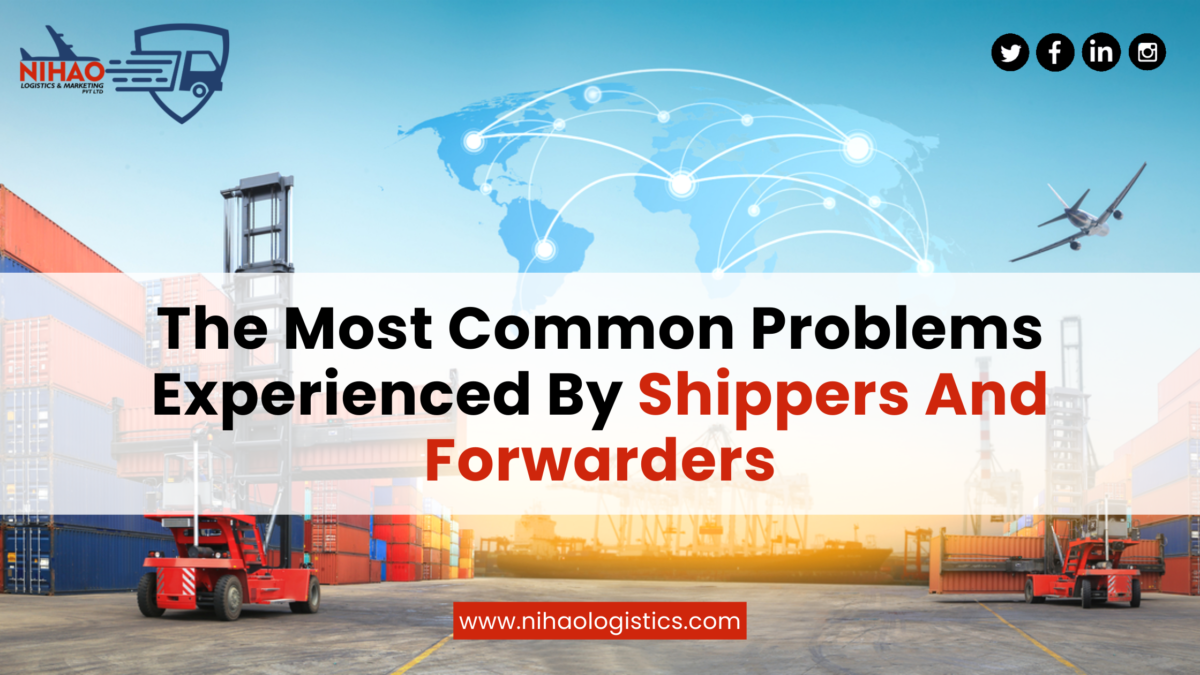Freight forwarders play an important role in guaranteeing the safe and timely delivery of your goods Because When it comes to critical logistics, you depend on freight forwarders as an exporter or importer.
It can be challenging for shippers and forwarders in transporting goods by air, sea, or land because of legal, financial, and logistical problems. Here, we discussed the most common difficulties and their practical solutions.
Commercial Invoice Information
A big problem for a conscious shipper is —-
- Incorrect or missing information: It is important to include accurate and complete information on the commercial invoice, as this can affect customs clearance and the payment of duties and taxes.
- Lack of standardization: Different countries have different requirements for commercial invoice information, which can make it difficult for shippers to know what information is needed and how it should be presented.
- Difficulty in determining the correct classification and value of goods: Shippers may have difficulty determining the correct classification and value of their goods, which can affect the amount of duties and taxes that are applied.
- Complexity of international trade regulations: Shippers may be unfamiliar with the complexities of international trade regulations, which can make it difficult for them to accurately complete commercial invoice information.
- Language barriers: If the shipper and the recipient are located in different countries and speak different languages, there may be language barriers that make it difficult to accurately communicate and complete commercial invoice information.
Complexities of Warehousing
whether you’re an exporter or an importer, you might need to temporarily store your items before making the final delivery. Customs bonded warehousing (CFS), which enables you to postpone paying duty or import VAT until your freight has cleared customs.
It is also possible to consider Warehouse Authorization Other Than Customs (WAOC which allows you to temporarily store eligible goods in a private warehouse while delaying the payment of custom duty.
Failure to Understand the Purpose of Your Bond
If you are importing goods into the United States, it is required by the government that you have a customs bond. This bond serves as a guarantee that you will pay the necessary taxes and duties on your imported goods. If you do not have a customs bond, you may face fines and delays on your shipments.
Rising consumer expectations
The customer expectation level has risen because their customer expectation level has risen Consumers may also expect a wider range of delivery options, such as same-day or next-day delivery, and the ability to choose the most convenient delivery location, such as a local store or pickup location. To meet these rising expectations, shipping companies may need to invest in new technologies and processes to improve the efficiency and accuracy of their operations. This can include things like using real-time tracking systems, implementing automation and machine learning, and expanding their network of distribution centers and delivery partners.
Increasing competition
There has been increasing competition in the shipping industry in recent years, due in part to the rise of e-commerce and the growing demand for timely and reliable transportation of goods. This has led to a number of changes in the industry. Shippers are also increasingly prioritizing customer experience and digital solutions in finding a partner. In fact, in a survey we conducted, 46% of shippers reported that they’d stopped working with one freight forwarder because another offered better technology. Many traditional freight forwarding companies are struggling to compete against new entrants, especially with the influx of digital-first agents.
Overall, the increasing competition in the shipping industry has benefited businesses by providing more options and lower prices, but it has also created challenges for carriers as they try to stay competitive in a crowded market.
Conclusion
The freight forwarding industry can be challenging, but it is possible to achieve success. Freight forwarders often face a range of issues, including constantly changing regulations and a highly competitive market. However, by leveraging digital tools and technologies to provide more efficient and insightful experiences for your team and customers, you can tackle these challenges head-on. Nihao Logistics & Marketing is Specializes in helping freight forwarders succeed by taking on the responsibilities of their logistics management and offering a wide range of services worldwide. With Nihao Logistics on your side, you can focus on growing your business while they handle the logistics.


